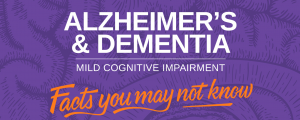Are You Suffering From Dementia, Depression, or Both?
When you consider the symptoms of depression, you may assume that the differences between dementia and this mood disorder would be obvious — but this isn’t always the case.
Considering there is a significant link between depression and dementia, we must ask ourselves — does depression increase your risk of dementia, or is it an early warning sign?
Today, we’re going to compare these two conditions, focusing on how they relate to one another.
Is It Dementia, Depression, or Possibly Both?
If you have experienced dementia firsthand while caring for a loved one, you’re likely aware that depression is common among Alzheimer’s patients. In fact, experts believe that approximately 40 percent of people with Alzheimer’s, also suffer from depression.
Since symptoms of depression and dementia can overlap, if you or a loved one have not been diagnosed with a form of dementia, it’s important to recognize the following symptoms. These symptoms are common in both dementia and depression cases:
- Impaired thinking and judgement
- Reduced attention and concentration
- Increased isolation and social withdrawal
- Apathy
The truth is, older individuals are often at risk for both depressive disorders and dementia. These conditions can occur together or independent of one another. When comparing the two based on how they’re defined:
- A depressive disorder is a syndrome in the presence of two of the following: loss of interest, reduced energy, and depressed mood for at least two weeks. Difficulties in thinking and memory may also be apparent — with or without the associated changes in mood. This diagnosis is treatable.
- In comparison, Alzheimer’s, for instance, is a disease that occurs due to progressive brain damage, affecting one’s memory, comprehension, thinking skills, orientation, and language. Alzheimer’s is the most common form of dementia, followed by vascular dementia. Although some cases of dementia are treatable, there is no cure for the two forms discussed above.
Recommended reading: Does Anxiety and Depression Cause Dementia?
The Association Between Depression and Cognitive Decline
When examining the available research, it’s clear that there’s a link between depressive symptoms and cognitive impairment. Within one key study, published in Geriatric Psychiatry, it was found that among cognitively normal elderly adults, elevated DepE (depressive endophenotype) scores were associated with poor neuropsychological performance.
It was also found that symptoms of depression were apparent well before symptoms of dementia began to manifest. Meaning, there may be a group of symptoms that could help doctors differentiate between individuals who are at-risk of developing dementia and those who age normally.
Based on this potential link, implementing therapy options to treat depression, could potentially slow down the rate of cognitive decline. Although antidepressants are available, there are plenty of lifestyle changes that can target depression, including exercise, diet, sleep, and social interaction.
When patients seek assistance in relation to memory loss, it’s imperative that depression is considered. When depression is the leading cause of one’s symptoms, it can be treated. If treated properly, memory can significantly improve. When considering the possibility that depression causes dementia, the following study is of particular interest.
As published in the BMJ, it was concluded that depression does not appear to increase the risk for dementia, however, depressive symptoms in later life may be a sign of dementia’s preclinical phase. Those who suffered from chronic or recurrent depressive symptoms early on in the study, did not experience an increased risk of dementia. In comparison, those who developed depressive symptoms later in the study, did.
It’s important to note that this research does conflict with other findings, so there is no black and white answer at this time. Considering that long-term anxiety and depression may cause inflammation in the brain, regardless of the connection, it’s important to treat depressive symptoms early on. Not only may brain damage occur, but individuals experience a reduced quality of life.
If It’s Depression, Here’s What to Do…
As always, if you are concerned that your cognition is impaired, it’s important that you seek a professional opinion. If you believe that you have been suffering from depression for quite some time, here are some practical tips that you can begin implementing today:
- Consider your circumstances, as symptoms of depression are not always biological. Is there anything that you can do to improve your happiness? Ask yourself, do I feel sad because of my job? My marriage? You need to be honest with yourself.
- Get moving — exercise increases endorphin and serotonin levels. Becoming more physically active can also support a healthier BMI.
- Eat more serotonin-rich foods, including salmon, eggs, raw nuts and seeds, pineapple, coconut oil, and turkey. Also ensure that you’re getting enough vitamin D.
On the other hand, if you are caring for someone who has already been diagnosed with Alzheimer’s or another form of dementia, please be mindful of potential depressive symptoms. In this case:
- You can inquire about available medications. Hwever, antidepressants are typically less effective among dementia patients than in people who do not have dementia.
- Encourage the individual you are caring for to regularly exercise. If they are able, go for short walks together. Gardening is also a great activity to improve mood and quality of life.
- Participate in activities that decrease social isolation.
To stay up-to-date with the latest in dementia research, be sure to regularly check-in to the BrainTest blog and Knowledge Center.

